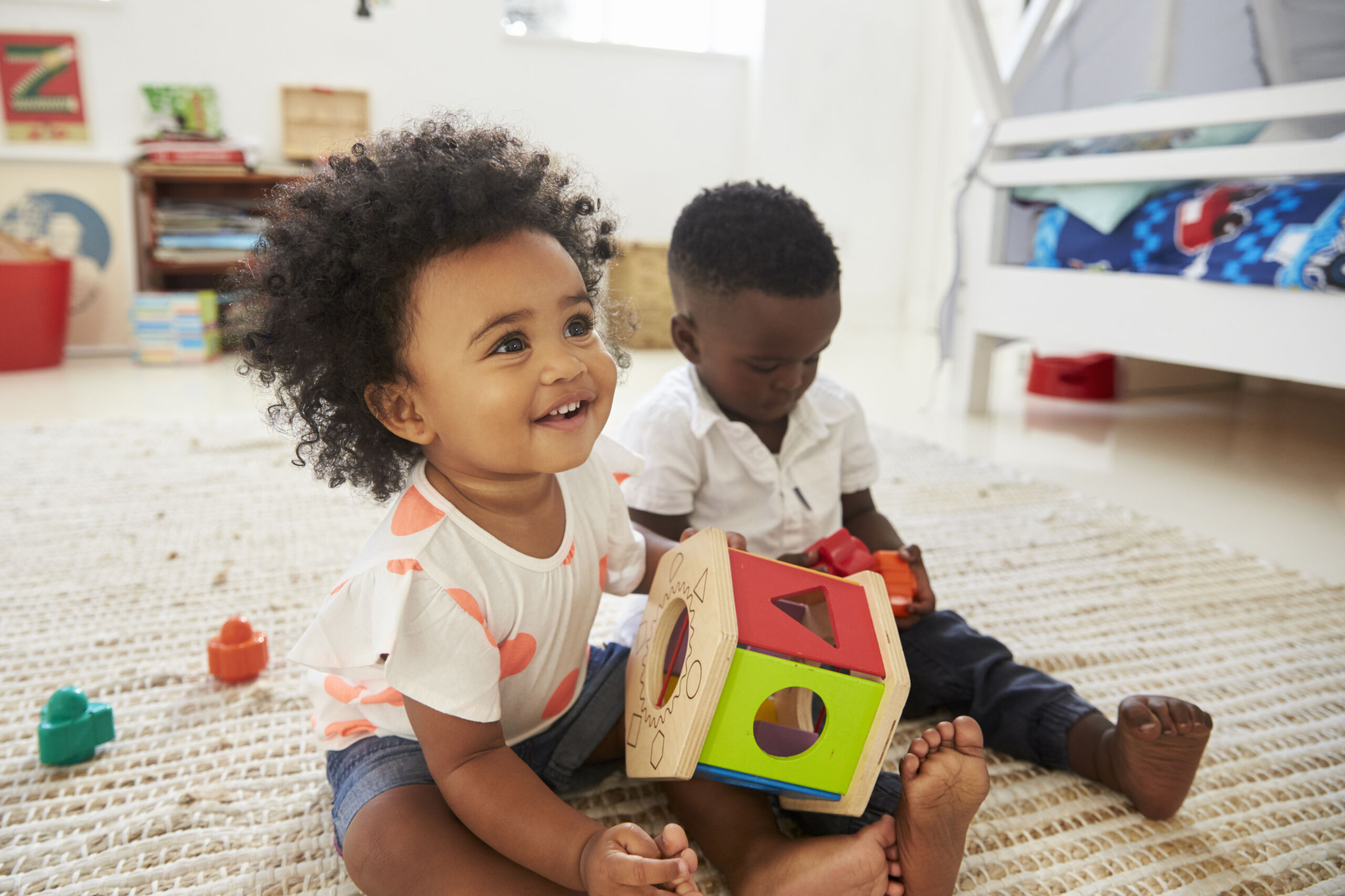Blog
Fort Myers Speech Therapist Insight: What’s a Speech Sound Disorder and How Do You Treat It?
It’s estimated that about one in a dozen kids in the U.S. between the ages of 3 and 17 has some type of disorder related to speech, voice, language or swallowing. Roughly 5 percent have a speech disorder specifically. When we look at even younger kids, it’s about 9 percent. Children who have speech sound disorders struggle to form speech sounds. They have trouble articulating individual sounds, being understood, modulating speech, they might stutter, have a lisp, etc. When it comes to speech sound disorders, working with a skilled, creative pediatric Fort Myers speech therapist can make all the difference.
About Speech Sound Disorders
Kids with speech sound disorders don’t have difficulty understanding language. What they struggle with is expressing language in the sounds of speech at a level that is age-appropriate.
As a Fort Myers speech therapist can explain, speech sound disorders are characterized by regular trouble producing speech sounds. That can mean several different things, including:
- Phonological problems. This is when one has a tough time producing certain sounds or sound blends.
- Vocal apparatus problems. This would be if someone has issues with their larynx or lungs that makes producing certain sounds difficult.
- Speech timing issues. This would be if a child has difficulty with their vowel onset time, vowel duration, consonant closure duration or voicing during consonant closure.
- Speech difficulty. This would be issues like stuttering or lisping.
Typically, we can classify a speech sound disorder either as a “phonological disorder” or an “articulation disorder.”
- Categorized: Speech Therapy
- Tagged: Fort Myers speech therapist, Fort Myers speech therapy, speech sound disorder
Why Speech Pathologists Focus So Much on “WH” Questions With Kids
The ability to ask and answer “Wh” questions is an integral part of language development. Speech pathologists recognize that kids must first be able to understand questions before they can engage in an exchange of information. It’s the very foundation of conversation.
Most typically-developing kids will start to ask and answer “Wh” questions when they’re between 1- and 2-years-old. They’ll continue fine-tuning these receptive and expressive language skills into their school years. Children with delays, disabilities, injuries and other conditions may struggle with Wh questions. Our Fort Myers speech pathologists at FOCUS can help.
Put a Sock on It! Occupational Therapy Tips for Donning/Doffing Socks
For many kids, learning to independently put on their socks and shoes is an important early childhood skill and major milestone. It’s an important indicator of emerging independence and self-care, and it also lays the foundation for planning and sequencing of more complex skills. But our occupational therapy team knows it can also be difficult to learn.
Several skills are required for one to be able to put on/take off their shoes and socks, including:
- Crossing midline
- Bilateral coordination
- Intrinsic and extrinsic muscle strength in hands
- Pincer grasp
- Hand-eye coordination
- Biomechanical postural control
- Forearm pronation and supination
All of this to say: It’s something that takes some baseline skills and practice! Children with delays, disabilities, injuries and other challenges may find it even more difficult to master if they struggle with:
- Poor finger strength (needed to manipulate items).
- Difficulty planning/sequencing (Step 1, Step 2, Step 3, etc.).
- Trouble with self-regulation (critical to persisting with a tough task).
- Limited interest in self care or independence.
FOCUS Phone Lines Down
Attention FOCUS families: Our office phone lines have been down intermittently this morning (1/14/21). If you need to reach our office and cannot get through to the main line, you can call the FOCUS cell phone: (239) 671-4144. If your concern is less than urgent, you can also email us at [email protected] or send us a direct message on our Facebook page.
- Categorized: FOCUS News
- Tagged: Focus Therapy
Teaching Kids to Fail: Self-Regulation a Key Goal in Occupational Therapy
In occupational therapy, we tend to see our mission as helping children succeed. However, we also recognize that it’s equally important to teach kids how to fail.
That may seem strange, but the reality is failure is an inevitable outcome for everyone at some point or another. The size of the failure may vary, but knowing how to better tolerate will reduce meltdowns, anxiety and social difficulties (which can exacerbate the initial problem). Perhaps even more importantly, kids who know it’s Ok to fail sometimes are less likely to give up – and more likely to try new things! Ultimately, knowing how to self-regulate and cope with failure sets your child up for success in the long-term.
This point was underscored several times by NBA great Michael Jordan, who throughout his career spoke about the importance of losing. Resilience and perseverance in the face of challenges are a huge part of what has much him a winner, he’s said.
“If you’re trying to achieve, there will be roadblocks. I’ve had them; everybody has had them. But obstacles don’t have to stop you. If you run into a wall, don’t turn around and give up. Figure out how to climb it, go through it, or work around it.”
Helping kids figure out ways to climb it, go through it and work around it are a huge part of what our FOCUS occupational therapy team does every day. Self-regulation is a big piece of that puzzle, particularly with children who are diagnosed with delays, disabilities and other challenges.
Bilingual Speech Therapy a Growing Need in South Florida
More than 20 percent of U.S. children are bilingual, a figure that continues to rise each year, particularly in a diverse region like South Florida. The American Speech-Language Hearing Association (ASHA) notes that there’s a common erroneous assumption that bilingualism contributes to childhood speech-language delays. However, those who practice bilingual speech therapy note that often what can seem to speakers of one language as a delay or disorder can actually be common processes of a child who is learning more than one language simultaneously.
At FOCUS Therapy, several of our speech, occupational and ABA therapists are bilingual and even multilingual. This uniquely situates us to not only treat bilingual children, but to better recognize in the first place if the speech patterns a child is presenting are truly indicative of a speech-language delay or if they appear on track developmentally.
FOCUS Therapy Cancellation Policy Update
Dear FOCUS Therapy Families,
If ever a year could be described as a rollercoaster, it was 2020. FOCUS Therapy is beyond grateful for the families, therapists and staff who stuck with us through whirlwind months of office closures (in accordance with CDC guidelines), rapidly-expanded teletherapy services, scheduling upheavals and enhanced safety protocols. Our services are vital to patients’ health and development, and we’re committed to delivering no matter the obstacles. Still, our success has always hinged heavily on the dedication of our FOCUS families.
As a token of our thanks, this new year we’re gifting each patient a clean slate on their appointment cancellation record. Starting Jan. 1, 2021, cancellations for the prior calendar year will not count against you or adversely impact your child’s standing as a FOCUS patient.
FOCUS Therapy Closed for the Holidays
A friendly reminder that FOCUS Therapy will be closed December 21st through 25th for the holidays. Our clinic will also be closed for a half day on New Year’s Eve and a full day on New Year’s Day.
Individual therapists may still schedule teletherapy services for speech therapy and occupational therapy patients.
Our annual scheduled office closings can be found on our Contact Us page.
If you have any other questions, you may email us or send us a direct message on our Facebook page.
From all of us at FOCUS Therapy, we wish each of our clients and their families the happiest of holidays and a new year that is both merry and bright!
FOCUS offers speech, ABA, OT and physical therapy to children in Fort Myers, Cape Coral and throughout Southwest Florida. Call (239) 313.5049 or Contact Us online.
- Categorized: FOCUS News
- Tagged: FOCUS ABA therapy, FOCUS OT, FOCUS speech therapy, Focus Therapy, FOCUS Therapy news
Proper Seating for Distance Learning: Fort Myers Physical Therapist on Posture Problems
Usually around this time of year, kids’ backpacks are stuffed with supplies, books and “lost” homework. Our Fort Myers physical therapy team will hear complaints about sore backs and necks due to the daily weight of that being distributed incorrectly. (After all, most kids don’t give a second thought to ergonomics.) But for many kids this year, those backpacks are lying unused on the closet floor. An estimated one-third of Lee County’s 84,000 students were attending Lee Home Connect and Lee Virtual School as of late November, according to The News-Press.
Distance learning has come with its own ergonomic woes. Namely, our Fort Myers physical therapy office is seeing issues with aches and pains caused by poor posture as they sit for hours at a computer screen.
Prolonged time spent slouched over a tablet or laptop or hunched over the kitchen table is bound to impact not only a child’s body, but their academic performance as well. The benefits of addressing abnormal postures and positioning are numerous. When they’re no longer in pain, kids’ attention improves, they retain more – and get the most out of distance learning and virtual therapy.
The good news is, even minor adjustments can make a major difference in how your child feels and how well they do in school.
Study: Social Skills Genes Heritable, But Influence Shifts as Children Age
A new study has found that some social behaviors and reciprocal social skills associated with autism are inherited. But as children get older, their environment takes on a growing influence in how the child develops, researchers concluded.
This reinforces something our Fort Myers ABA therapy team has known for some time: The minds of children are incredibly resilient, and with appropriate early intervention, new neuropathways can be forged to help them overcome many of the deficits they face.










